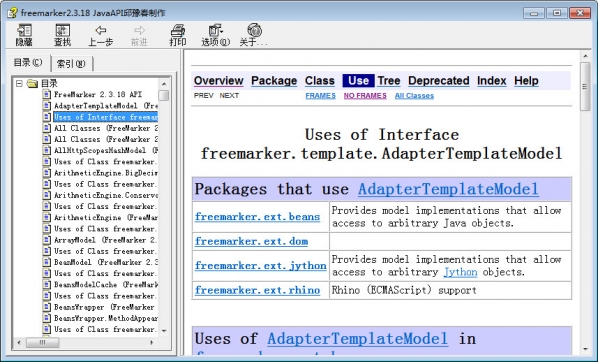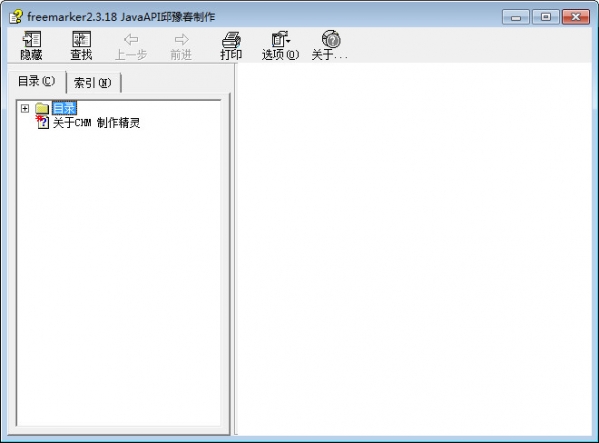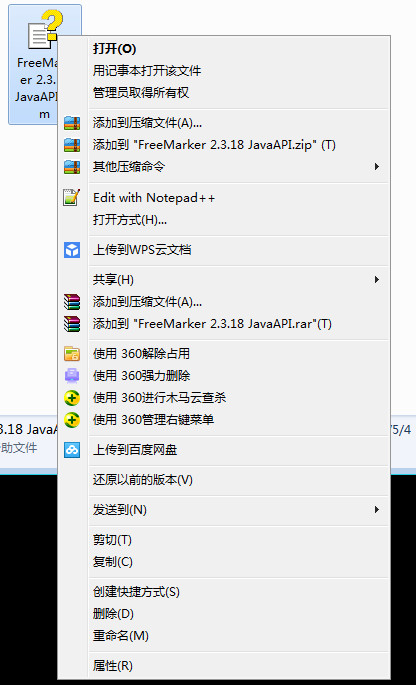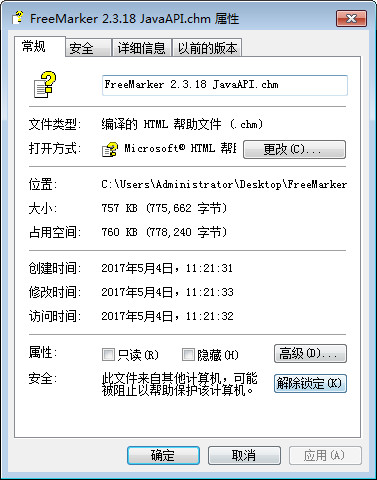
freemarker api Chinese offline chm version
FAQ
If a blank page appears

freemarker api download
Right click on the file and enter properties

freemarker api download
Click to unlock and re-enter offline chm.

freemarker api chinese
Software features
1. Versatility
Able to generate various texts: HTML, XML, RTF, Java source code, etc.
Easy to embed into products: lightweight; no Servlet environment required.
Plug-in template loader: can load templates from any source, such as local files, databases, etc.
The text can be generated as desired: saved to a local file; sent as an Email; sent from a web application back to the web browser.
2. Template language
All commonly used instructions: include, if/elseif/else, loop structures.
Create and change variables in templates.
Complex expressions can be used to specify values almost anywhere.
Named macros can also have positional parameters or nested content as required.
Namespaces help build and maintain a reusable macro library, or divide a large project into modules without having to worry about name conflicts.
Output transformation block: Convert HTML escaping, syntax highlighting, compression, etc. when nested template fragments are generated and output; define your own transformations.
3. Common data model
FreeMarker software does not directly reflect to Java objects, but Java objects are encapsulated through plug-in objects and then displayed in the template as variables.
You can use abstract (interface) methods to represent objects (JavaBeans, XML documents, SQL query result sets, etc.) and tell template developers to use them. Ways to keep it out of the way of technical details.
4. Prepare for the Web
In template languages, constructs are used to handle typical web-related tasks (such as HTML escaping).
Can be integrated into the Model2 web application framework as a replacement for JSP.
Support JSP tag library.
Designed for the MVC pattern: Separate visual design and application logic; Separate page designers and programmers.
5. Intelligent internationalization and localization
Character set intelligence (UNICODE is used internally).
Number formats are localization sensitive.
Date and time formats are localization sensitive.
Non-US character sets may be used for identification (e.g. variable names).
The same template in many different languages.
6. XML processing capabilities
The <#recurse> and <#visit> directives (version 2.3) are used to recursively traverse the XML tree.
Explicit templates and direct access to the template XML object model.
































it works
it works
it works